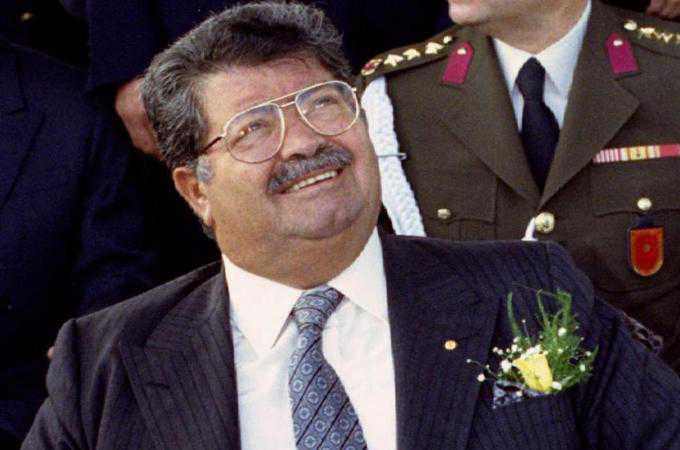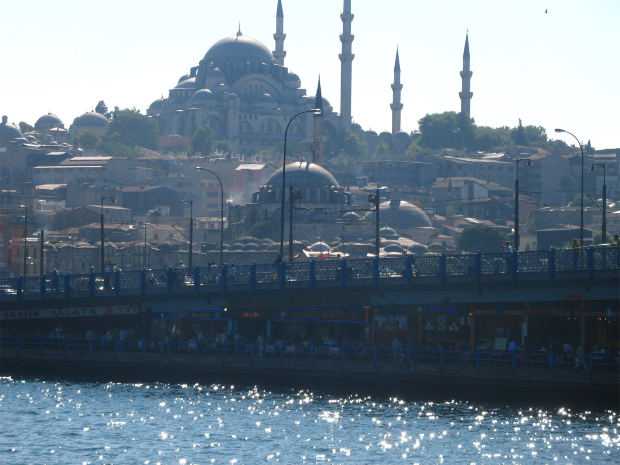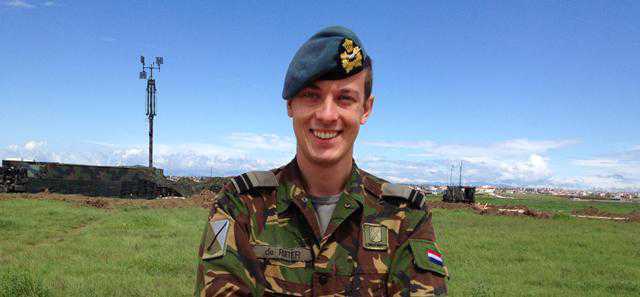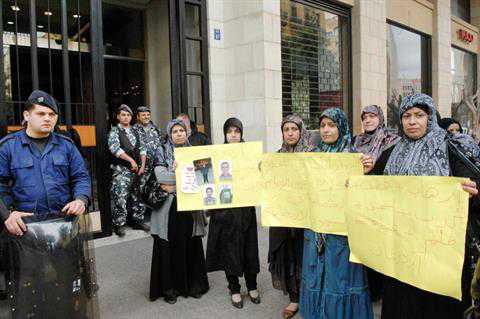
Turkey needs a new and robustly democratic constitution – only then can we talk about a regional democratisation model.
Larbi Sadiki
Dr Larbi Sadiki is a Senior Lecturer in Middle East Politics at the University of Exeter, and author of Arab Democratization: Elections without Democracy (Oxford University Press, 2009) and The Search for Arab Democracy: Discourses and Counter-Discourses (Columbia University Press, 2004).
Nothing is more fallacious than projecting Turkey as a model for the fledgling Arab Spring democracies. Not for lack of good practices on the Turkish side. Rather, the problems rest with the Arab side, in my view. The software (Turkish know-how), as it were, does not suit the existing hardware (Arab Spring republics). How and why? A few areas call for attention.Arab and Turkish Islamism
The eruption of Arab revolutions has done wonders to Turkey. It is all of a sudden catapulted into the limelight as the most relevant transitional example. That is, one on which new Arab transitional candidates may potentially be modelled. It is not just democracy that advocates have in mind. It is precisely “Islamic” or AKP-type democratisation that draws the advocates’ attention. Even here, the argument could not be more flawed.
The brand of AKP democracy invokes “Muslim politics” – the use is intended to take precedence over “Political Islam” and “Islamism”.
The difference is often missed until Dale Eickelman and James Piscatori put the question to bed. The two scholars launched the career of the concept in the 1990s. In its gist it refers to how Islam’s ideals are wedded to reality, by recycling, reviving, selecting, re-thinking and reinterpreting the wide range of symbols and intellectual resources cumulatively added to the religious canons over a period of 1,400 years. The upshot are contests and counter-contests over meaning, fragmentation of sacred authority, and unprecedented access of arguably more educated Muslim masses to the interpretive vocation, once the exclusive bastion of the learned.
Islamism seeks civic re-branding of Islam. It is generally driven by a top-down movement in which the symbols of Islam are re-arranged to suit political ends: systematic Islamisation of state, society and culture. This movement has had its ups and downs, including periods of attrition (confrontation with the national-secular state) and disputations amongst various Brotherhood schools (Sudan, Jordan, Palestine, Gulf and Maghreb countries’ reinterpretations fine-tuning those of the “mother-organisation” in Egypt). The difference between Turkish and Arab Islamism is as follows: Arab Islamists have privileged theory over practice; Turkish Islamists have almost done the opposite.
Not directly tied to Turkish Islamists, but Fethullah Gulen’s eclecticism (open to market economics), pragmatism (gradual renaissance, less emphasis on dogma, stress on education) and spirituality (with a Sufi content), and nationalism (Turkish, local knowledge derived from Nuri Said’s teachings) are difficult to match with Arab seminal ideologues, which count amongst their ranks brilliant thinkers such as the late Shaykh Muhammad al-Ghazali of Egypt (open to democracy, equal gender relations, universal citizenship and rule of law).
The lineage of both brands of Islamism and the “workshops” where they are forged are different.
Muslim politics more or less facilitates participation by the previously excluded multitude. The gates of speech, too, are flung wide-open. This is where the AKP comes in handy: building resourcefulness in politics to crystallise and prove the utility or relevance of Islamic symbols. There are no clerical oligarchs who pontificate – AKP has no analogue to Hassan al-Banna, Sayyid Qutb, Hassan al-Turabi or Rachid Ghannouchi. However, they have amongst their ranks thousands of successful industrialists, businessmen, entrepreneurs, artisans, professionals and civil servants.
Building ‘Islam-city’
As if the AKP builds “Islam-city” bottom-up, acquiring the savoir-faire of both politics and Islam by engaging with the horizontal dimensions of life: how to build modern infrastructure, alleviate poverty, transfer factories from Europe to Turkey and construct a robust work ethic. For Arab Islamists, “Islam-city” remains largely discursive: that is of course until the election of Islamists into power such as in Egypt and Tunisia in the context of the Arab Spring.
That is, it is a figment of re-imagining community, a process threaded to Quranic injunctions and hadiths , and only meekly tied to the travails of how to build a modern economy, a country that works and states that master the art of the game of nations: competitively safeguarding sovereignty and being ahead in the learning curve of the global economy.
To recap, there are three major criteria for drawing parallels and recording differences between the two types of how to be Muslim and active in politics:
In terms of ontology, the AKP and Arab Islamisms agree: in essence, Muslim identity cannot exist de-coupled from Islam.
When it comes to epistemology: for the AKP, verifiability of Islam-city (civic Islam) finds validation in empiricalsavoir-faire and the attendant tests of Western modernity. For Arab Islamists, dogma, teleology and eschatology are inextricably linked to the search for some notion of “Islam-city” through which the alternative to modernity delivers contests.
Methodologically, the AKP pragmatically enacts the symbols of Islam quantitatively, privileging hands-on approaches to seek quality, whereas Arab Islamists are qualitative seekers of truth, with quantity being secondary: material success has no meaning if it overlooks eudemonia (happiness) in the hereafter.
Arab and Turkish secularisms: The route to democracy
There is a Turkish distinction without Arab equivalence. Since the time of Kemal Ataturk, secularism in Turkey has opened up continuous workshops in which polarities forged the dynamics of diversity within unity, and opposites who pluralised the system and eventually set it on a democratising track.
Arab secularisms have been incoherent, rigidly rejecting all opposition. When socialism was state policy, defenders of the market or and liberal politics were constructed as state enemies. When times changed and an open-door policy evolved as the state’s political mantra, discourses, moralities and ideologies on the left of the political spectrum became the new marginal. By and large, the vagaries of the “left” and the “right” proscribed religious voices and forces.
East-West divides have been turned into grounds for creating a workable synthesis, on Turkish terms, through which the excesses of Ataturk’s quest for Europeanisation are blended with Turko-Islamic yearnings. Turkey has transcended the “Western complex”. Arabs, generally, and Islamists more specifically, have turned the “West” as a constant antithesis, a kind of “Orientalism in reverse”, countering Western theses of “exceptionalism” about Arabs and Muslims.
Moreover, Turkish “Muslim politics”, by under-stating dogma and verifying the symbols of Islam in engaging with modernity in a vast territory in which the bar was raised for the country’s industrialists, entrepreneurs, human rights and democracy advocates, and even EU advocates, has gradually learnt how to reconcile the imperatives of secularism and Islamism.
Arab Islamists are, in varying degrees, too dogmatic to raise the level of the discursive and the sophistication that derives from an appreciation of “Smithean logic” (metaphorically) in making wealth for their nations, building countries that work and in competing or developing a vigorous work ethic. Only in these workshops the complex of secularism may be tested, adjusted, and, perhaps, superseded. Declarations of the much-vaunted “Islamic state” thus far lack the practical engagement with modernity’s complexities, innovations and scientific, medical and technological revolutions.
That Turkey is today on course to economic greatness and democratic consolidation must be understood within Turkish specificity: “democratising dialectics” that locked polity and society into a reformist logic of no return. It is through this that structural achievements over a 60-year period, since multi-partyism was launched, that the building blocks of political and economic development have been laid. En route to the current context, Ataturk and Erdogan represent, on the surface, opposites. In practice, combined, respectively, as thesis-antithesis, have created the synthesis that is today Turkey.
Democratic dialectics
Thus each of the political figures in the leadership phalanx in Turkey represents a necessity to mother the invention of the systemic processes of Ataturkist nationalism, military-bureaucratic centralism, followed by multi-partyism, including religious parties, through to democratisation.
Ataturk preserved the Anatolian motherland, and dismantled the Ottoman imperial regime, founding a brand of centralised republicanism. By introducing multi-partyism , “Neo-Ataturkist” Ismet Inonu rebelled against Ataturk’s single-party and patrimonial polity, and reaching to the periphery. He ended the dominance of Ataturk’s Republican People’s Party (RPP), and along with RPP rebels, they had the Democrat Party (DP) as a contender for power by the 1946 general election. Four years later, multi-partyism was in full swing, with the DP winning the 1950 election and leading the government for close to 10 years.
Suleyman Demirel broke with tradition when he revolutionised economic strategy, favouring export-based orientation, the onset of fully-fledged capitalism. It marked the onset of new democratic dialectics in which workers and the forces of the left sharpened their political skills and opposition.
The 1960s, which was marked by a coup against Prime Minister Adnan Menderes’ government, created sufficient democratic dialectics the upshot of which was a momentum pitting civil society against the military and bureaucracy. This was a prime example of how opposites created the transformative dynamics of internal sparring between the forces of paternalistic political patronage and democratic pluralism.
Even throughout the 1960s and 1970s, under military tutelage and façade democratic competition, from Suleyman Demirel’s Justice Party politics through to Bulent Ecevit of the RPP, Turkey’s polity was acquiring the structural conditions of democratic transitions and society was enabling itself by consolidation of the agency to organise politically.
By the 1980s, the military under General Kenan Evren waseager to steer politics from the sidelines, aided by constitutional guardianship, as new dialectics began with the birth of Kemalism’s most vigorous antithesis: the National Salvation Party and its leader Necmettin Erbakan. Just as qualitative as the rise of Muslim politics in Turkey, which shook the military, the defenders of the Kemalist republic, was Turgut Ozal and the Motherland Party who helped modernise and transform Turkey in the 1980s and early 1990s.
This was an historical moment that marked the severing of the umbilical cord with the generals, unlike under the Demirel and Bulent Ulusu’s governments, which pandered to the top brass. The 1983 election fought under a proportional system, and won by Ozal , asserted society’s thirst for autonomy from the army, setting in motion the process of civilianisation of polity. Erdogan closed the circle: deepening Ozal’s quest for civilianisation of polity (hence the systematic dismantling of the deep state), economic development and globalisation, and closer ties with the European Union. There would have been neither Ozal nor Erdogan without Ataturk, Evran, Demirel, or Erbakan.
Ozal has no Arab analogue in any of the republics ousted by three revolutions in 2011, Egypt, Libya and Tunisia. Arab politics were drenched in deep singularity, literally with ruling mass-mobilisation parties occupying the state, eventually privatising politics. The difference could not be starker: Turkey’s state-building began with a narrow ideational and leadership base, which continuously widened, creating openings generated by democratic dialectics, through which thesis and antithesis yield synergy. Arab state-building started with a wide power base, which had been tattered gradually under the juggernaut of eliminating all opposition in the name of national unity and uniformity.
Turkish model versus Turkish good practices
All the Turkish leaders mentioned, however, worked within the parameters demarcated by the republic’s architect Ataturk who remains first amongst equals amongst the inheritors of the ship of government in Turkey: commitment to Turkish nationalism, under the watchful eyes of the military, and the quest for modernity, economic development and democratisation.
However, piece by piece, the early Kemalist tutelage is turned into a dispersed project of collective ownership guided by the objectives of modernisation of economy and society, and de-centralisation, de-bureaucratisation, de-militarisation and democratisation of polity. The new vision is guided by deeper pluralisation so that citizenship includes the sizeable Kurdish minority. This is where the Justice and Development Party or AKP may succeed where its predecessors have failed. Only time will tell how this workshop of refashioning citizenship proceeds.
Turkish democratisation is still unfurling and has imperfections, which Turkish critics, including from within the government know of: deeper and wider universalisation of citizenship rights, and improved human rights. This is the next learning curve for Turkish democrats, including within the AKP. Plus, Turkey needs a new and robustly democratic constitution! May be only then we can talk about a regional democratisation “model”.
In the Arab case, revolution had to arrive. It was logical explosion in the face of a reality in which power-holders monopolised all stakes in politics. Whether the revolutionary route delivers the structural, ideational and moral mechanisms for democratisation remains to be seen. Regardless, the Turkish experience or “model” – with many a good practice of relevance to Arab Spring democracies – cannot be replicated with Ozals and Erdogans.
Dr Larbi Sadiki is a Senior Lecturer in Middle East Politics at the University of Exeter, and author of Arab Democratization: Elections without Democracy (Oxford University Press, 2009) and The Search for Arab Democracy: Discourses and Counter-Discourses (Columbia University Press, 2004).
The views expressed in this article are the author’s own and do not necessarily reflect Al Jazeera’s editorial policy.
Source:
Al Jazeera






